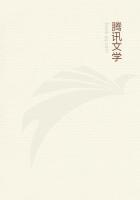From our very first months at Hull-House we found it much easier to deal with the first generation of crowded city life than with the second or third, because it is more natural and cast in a simpler mold. The Italian and Bohemian peasants who live in Chicago still put on their bright holiday clothes on a Sunday and go to visit their cousins. They tramp along with at least a suggestion of having once walked over plowed fields and breathed country air. The second generation of city poor too often have no holiday clothes and consider their relations a "bad lot." I have heard a drunken man in a maudlin stage babble of his good country mother and imagine he was driving the cows home, and I knew that his little son who laughed loud at him would be drunk earlier in life and would have no pastoral interlude to his ravings. Hospitality still survives among foreigners, although it is buried under false pride among the poorest Americans. One thing seemed clear in regard to entertaining immigrants; to preserve and keep whatever of value their past life contained and to bring them in contact with a better type of Americans. For several years, every Saturday evening the entire families of our Italian neighbors were our guests. These evenings were very popular during our first winters at Hull-House. Many educated Italians helped us, and the house became known as a place where Italians were welcome and where national holidays were observed.
They come to us with their petty lawsuits, sad relics of the vendetta, with their incorrigible boys, with their hospital cases, with their aspirations for American clothes, and with their needs for an interpreter.
An editor of an Italian paper made a genuine connection between us and the Italian colony, not only with the Neapolitans and the Sicilians of the immediate neighborhood, but with the educated connazionali throughout the city, until he went south to start an agricultural colony in Alabama, in the establishment of which Hull-House heartily cooperated.
Possibly the South Italians more than any other immigrants represent the pathetic stupidity of agricultural people crowded into city tenements, and we were much gratified when thirty peasant families were induced to move upon the land which they knew so well how to cultivate. The starting of this colony, however, was a very expensive affair in spite of the fact that the colonists purchased the land at two dollars an acre; they needed much more than raw land, and although it was possible to collect the small sums necessary to sustain them during the hard time of the first two years, we were fully convinced that undertakings of this sort could be conducted properly only by colonization societies such as England has established, or, better still, by enlarging the functions of the Federal Department of Immigration.
An evening similar in purpose to the one devoted to the Italians was organized for the Germans, in our first year. Owing to the superior education of our Teutonic guests and the clever leading of a cultivated German woman, these evenings reflected something of that cozy social intercourse which is found in its perfection in the fatherland. Our guests sang a great deal in the tender minor of the German folksong or in the rousing spirit of the Rhine, and they slowly but persistently pursued a course in German history and literature, recovering something of that poetry and romance which they had long since resigned with other good things. We found strong family affection between them and their English-speaking children, but their pleasures were not in common, and they seldom went out together. Perhaps the greatest value of the Settlement to them was in placing large and pleasant rooms with musical facilities at their disposal, and in reviving their almost forgotten enthusiams. I have seen sons and daughters stand in complete surprise as their mother's knitting needles softly beat time to the song she was singing, or her worn face turned rosy under the hand-clapping as she made an old-fashioned curtsy at the end of a German poem. It was easy to fancy a growing touch of respect in her children's manner to her, and a rising enthusiasm for German literature and reminiscence on the part of all the family, an effort to bring together the old life and the new, a respect for the older cultivation, and not quite so much assurance that the new was the best.
This tendency upon the part of the older immigrants to lose the amenities of European life without sharing those of America has often been deplored by keen observers from the home countries.
When Professor Masurek of Prague gave a course of lectures in the University of Chicago, he was much distressed over the materialism into which the Bohemians of Chicago had fallen. The early immigrants had been so stirred by the opportunity to own real estate, an appeal perhaps to the Slavic land hunger, and their energies had become so completely absorbed in money-making that all other interests had apparently dropped away. And yet I recall a very touching incident in connection with a lecture Professor Masurek gave at Hull-House, in which he had appealed to his countrymen to arouse themselves from this tendency to fall below their home civilization and to forget the great enthusiasm which had united them into the Pan-Slavic Movement. A Bohemian widow who supported herself and her two children by scrubbing, hastily sent her youngest child to purchase, with the twenty-five cents which was to have supplied them with food the next day, a bunch of red roses which she presented to the lecturer in appreciation of his testimony to the reality of the things of the spirit.















